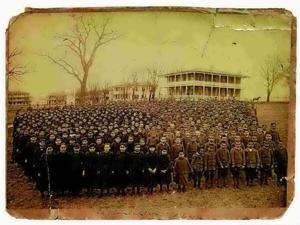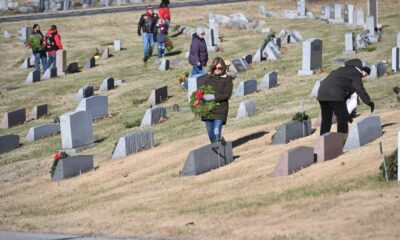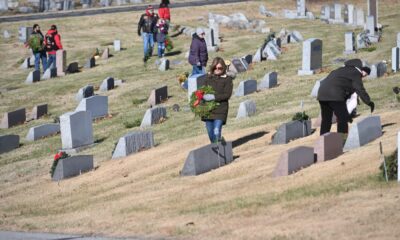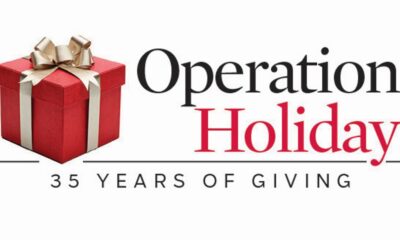Education
Indigenous Remains Returned to Tribes After Decades of Displacement

The remains of two Indigenous individuals, Matavito Horse and Leah Road Traveler, have been returned to their respective tribes, marking a significant step in addressing the historical injustices faced by Native American communities. These remains were taken to the Carlisle Indian Industrial School in Pennsylvania in October 1879, part of a broader campaign by the U.S. government aimed at assimilating Native American youth and erasing their cultural identities.
The Carlisle Indian Industrial School, established in 1879, served as one of the most notorious institutions in this campaign. Children were forcibly removed from their families and communities, subjected to cultural indoctrination, and stripped of their identities. This practice left lasting scars on generations of Native American families.
The recent return of the remains was facilitated by the National Native American Boarding School Healing Coalition, an organization dedicated to addressing the legacy of boarding schools and advocating for the rights of Indigenous peoples. This coalition has been instrumental in the efforts to recover remains from various institutions across the United States and facilitate their return to the tribes.
Officials from both the U.S. government and tribal representatives participated in a ceremony to honor the lives of Matavito Horse and Leah Road Traveler. This event not only serves as a moment of closure for the families involved but also symbolizes a larger movement toward reconciliation and healing.
The return of Indigenous remains is part of a growing acknowledgment of the traumatic history associated with boarding schools. In recent years, there has been a concerted effort to document and return the remains of Indigenous children who died while attending these institutions. According to reports, thousands of Indigenous children were buried in unmarked graves, and many families continue to seek closure.
As the conversation around Indigenous rights and historical injustices continues to evolve, the return of Matavito Horse and Leah Road Traveler’s remains stands as a meaningful gesture towards healing. It underscores the importance of recognizing the past and working collaboratively with Indigenous communities to foster understanding and respect.
The path to reconciliation is long, but steps such as these serve to remind us of the ongoing need for dialogue and action in addressing historical wrongs. The return of these remains not only honors the individuals themselves but also their families and communities who have endured decades of loss and displacement.
With increasing attention on the legacy of boarding schools, the hope is that more remains will be returned, allowing families the opportunity to mourn their loved ones properly and restore some dignity to their histories.
-

 Technology5 months ago
Technology5 months agoDiscover the Top 10 Calorie Counting Apps of 2025
-

 Health3 months ago
Health3 months agoBella Hadid Shares Health Update After Treatment for Lyme Disease
-

 Health3 months ago
Health3 months agoErin Bates Shares Recovery Update Following Sepsis Complications
-

 Technology4 months ago
Technology4 months agoDiscover How to Reverse Image Search Using ChatGPT Effortlessly
-

 Technology1 month ago
Technology1 month agoDiscover 2025’s Top GPUs for Exceptional 4K Gaming Performance
-

 Technology3 months ago
Technology3 months agoElectric Moto Influencer Surronster Arrested in Tijuana
-

 Technology6 days ago
Technology6 days agoOpenAI to Implement Age Verification for ChatGPT by December 2025
-

 Technology5 months ago
Technology5 months agoMeta Initiates $60B AI Data Center Expansion, Starting in Ohio
-

 Technology5 months ago
Technology5 months agoRecovering a Suspended TikTok Account: A Step-by-Step Guide
-

 Health5 months ago
Health5 months agoTested: Rab Firewall Mountain Jacket Survives Harsh Conditions
-

 Health3 months ago
Health3 months agoAnalysts Project Stronger Growth for Apple’s iPhone 17 Lineup
-

 Lifestyle5 months ago
Lifestyle5 months agoBelton Family Reunites After Daughter Survives Hill Country Floods





















